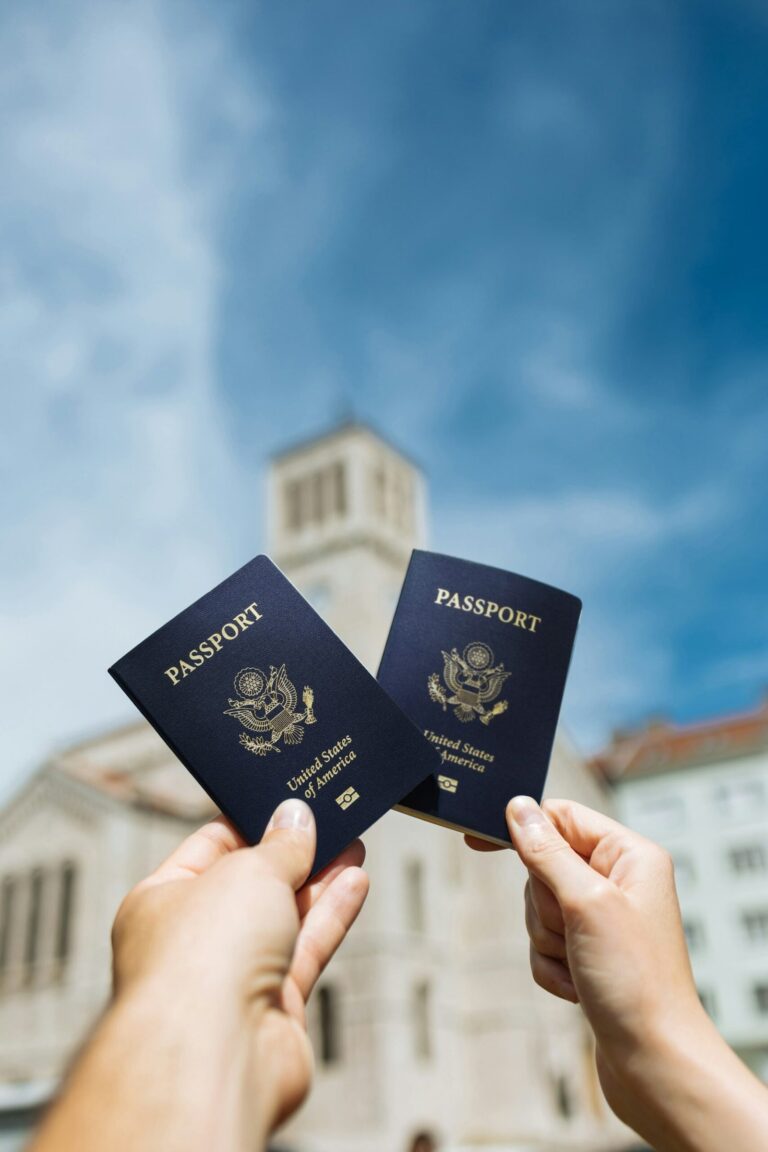Cities with Lightning Fast Internet and Low Living Costs: Your Guide to Affordable High-Speed Living
In today’s digital age, finding a city that combines lightning-fast internet with an affordable cost of living is essential for remote workers and digital nomads.
Cities like Sofia, Bulgaria, and Des Moines, Iowa, offer the perfect balance, allowing you to enjoy both high-speed connectivity and budget-friendly living.
Whether you’re seeking vibrant urban environments or charming smaller towns, there are plenty of options that cater to your needs. It might be time to get your first passport, if you haven’t already.
Imagine waking up in a city where you can work seamlessly online without worrying about slow connections or soaring rent prices. From stunning landscapes in Buenos Aires to the welcoming community of affordable small towns in the U.S., your dream location is out there waiting for you.
Discovering these hidden gems can transform your lifestyle, making it not only more enjoyable but also more economically viable. Rent is one of the biggest monthly expenses, so saving here can help you build wealth over time instead of getting buried in living expenses.
As you explore the top cities that fit this criteria, you’ll find opportunities that pave the way for a balanced life, filled with both work and adventure. Embrace the freedom of remote work while enjoying all that these cities have to offer.
If you don’t have a lot of travel experience, you might want to start with these top-ranked destinations for Americans traveling abroad.
The Appeal of High-Speed Internet
High-speed internet has become a significant factor in choosing where to live and work, especially for digital nomads and remote professionals. Its advantages go beyond mere convenience, impacting productivity and quality of life.
Global Internet Speed Trends
Internet speeds continue to rise globally, with countries investing heavily in infrastructure to keep pace with demand.
As of 2025, the average global internet speed has surged past 30 Mbps, with some nations offering speeds exceeding 100 Mbps.
Cities like San Diego reportedly offer speeds of around 287 Mbps on average, making them attractive to those seeking reliable connectivity. This aligns with the increasing trend of remote work and digital entrepreneurship.
With access to lightning-fast internet, more people can choose their living environments without compromising on connectivity.
Benefits of Lightning Fast Connectivity
Fast internet offers several practical benefits that can significantly enhance your work and lifestyle.
- Enhanced Productivity: Quick downloads and uploads mean less waiting and more doing. You can stream video calls seamlessly, upload large files in seconds, and collaborate in real-time with colleagues worldwide.
- Flexibility: Enhanced connectivity allows you to work from almost anywhere. Whether it’s a coffee shop in Lisbon or a co-working space in Bali, high-speed internet enables you to find the perfect work environment.
- Accessibility to Resources: With fast internet, accessing online resources like cloud storage, extensive databases, and digital tools becomes efficient, allowing for smoother workflows.
You can truly make the most of your remote work setup in a city that prioritizes high-speed internet.
Cost of Living Defined
Understanding the cost of living is crucial as it encompasses all expenses you may encounter while living in a city. This section will cover the key components of living expenses and how to analyze affordability effectively.
Key Components of Living Expenses
When evaluating the cost of living, focus on several key components:
- Housing: Rent or mortgage payments often consume a significant part of your budget. Look for areas where housing is reasonably priced.
- Utilities: Include electricity, water, and gas, as these costs can vary widely. Research averages for your chosen city.
- Transportation: Consider public transport costs or expenses related to car ownership like gas and insurance.
- Groceries: This can fluctuate based on location. Fresh produce can add to your living costs if not sourced locally.
- Healthcare: Ensure to factor in health insurance and out-of-pocket medical expenses.
Each of these components plays a critical role in determining how much disposable income you’ll have for leisure and savings.
Analyzing Affordability
To determine if a city fits your budget, you need to analyze affordability:
- Income vs. Expenses: Compare your expected income with your living costs to see how much you’ll have left over.
- Cost of Living Index: Use tools that provide an index comparing different cities. This can help you easily spot more affordable options.
- Local Economic Factors: Check for job growth and average salaries within your field. A strong local economy may signal job availability which affects your income potential.
- Lifestyle Choices: Your personal preferences, like dining out or engaging in entertainment, will impact your budget. Tailor your living choices to meet your financial goals.
By carefully assessing these factors, you can make informed decisions about where to live based on your financial situation.
Top Cities for Internet Speed and Affordability
If you’re looking for places that combine high-speed internet with low living costs, several cities around the world stand out. These locations offer excellent connectivity while being budget-friendly, making them ideal for remote workers and digital nomads.
Cities in Eastern Europe
Eastern Europe has become a hub for remote workers due to its fast internet and reasonable expenses.
Cities like Sofia, Bulgaria, offer impressive internet speeds with an average download speed of 80 Mbps. The cost of living is on average 50% lower than in major Western European cities.
Krakow, Poland, is another great option. You can find apartments for reasonable prices, while enjoying internet speeds that often exceed 200 Mbps. The historical charm paired with modern infrastructure makes it a prime location for your next adventure.
Cities in Southeast Asia
Southeast Asia is a favorite for many digital nomads.
Chiang Mai, Thailand, is renowned for its affordable living, with costs around $500 a month. You can access reliable internet with speeds averaging 50 Mbps, perfect for video calls and streaming.
Bali, Indonesia, particularly in areas like Canggu, offers not just stunning landscapes but also excellent connectivity. With numerous coworking spaces, the internet speeds often reach up to 100 Mbps, allowing you to work comfortably while enjoying the tropical vibe.
Emerging Hotspots in South America
South America is on the rise as a destination for affordable living and fast internet.
Buenos Aires, Argentina, stands out with an average internet speed of 60 Mbps. With a vibrant culture and culinary scene, you can enjoy a low cost of living while working remotely.
Medellín, Colombia, is another must-visit city. Known for its pleasant climate, it has internet speeds reaching 50 Mbps. The affordability, combined with numerous coworking spaces, makes it an excellent choice for anyone looking to balance work and leisure effectively.
Technological Infrastructure
Access to robust technological infrastructure is crucial for cities that aim to attract digital nomads and offer a high quality of life. Fast internet is just one element; comprehensive investment in connectivity is equally important.
Fiber Optic Networks
Fiber optic networks are vital for providing lightning-fast internet speeds. These networks enable data to be transmitted at high speeds, which is essential for seamless video conferencing, streaming, and downloading large files.
Many cities with low living costs are beginning to prioritize fiber installation.
For instance, cities like Tallinn and Mexico City have embraced this technology, enhancing their appeal to remote workers. The availability of gigabit-speed internet significantly improves productivity and work efficiency.
Furthermore, fiber networks offer greater reliability compared to other types of internet connections, reducing downtime and service interruptions. This commitment to technological infrastructure ensures that you can work smoothly and efficiently from virtually anywhere.
Investment in Connectivity
Continued investment in connectivity is a key focus for many urban planners.
Cities that allocate funds to develop public Wi-Fi and boost internet access in underserved areas are especially attractive.
Infrastructure upgrades often include expanding mobile broadband networks and improving existing services. Cities like Austin, Texas, and Lisbon, Portugal, are examples where such investments are evident.
Additionally, local governments frequently partner with private companies to roll out enhanced internet services. This public-private collaboration helps ensure that residents and visitors have access to fast and reliable internet. Adopting smart city technologies is also an integral part of this investment, paving the way for future innovations.
Cultural and Lifestyle Considerations
When considering a move to a city with both fast internet and low living costs, it’s crucial to think about the local culture and available resources. Your experience may significantly depend on how well you integrate into the community and the amenities available for expatriates.
Local Culture and Community
In cities popular with digital nomads, local cultures often blend tradition with modern influences. You’ll find vibrant street markets, art galleries, and music festivals that showcase local talent.
Engaging in community events can enhance your experience, as well as provide opportunities to connect with locals.
Be open to trying regional foods and participating in cultural activities.
For example, in Medellín, Colombia, you can enjoy their famous arepas and join in on local festivals.
Local languages can vary widely, so learning a few phrases can be greatly beneficial. This effort to communicate can foster relationships and make integration smoother.
Expatriate Amenities and Networks
Most cities with favorable living conditions for nomads boast established expatriate networks. These networks provide various amenities tailored for you.
Intriguingly, many coworking spaces often host networking events and workshops. Expect to find community boards and online groups where you can connect with other expats.
Joining these groups can help you navigate daily life and find social opportunities. Key amenities often include international grocery stores, healthcare facilities catering to foreigners, and leisure activities designed for diverse cultures.
You can also benefit from the presence of established social clubs and meet-ups specifically for expatriates. This supportive environment will help you settle in more comfortably while making your new city feel like home.
Get some ideas for Unconventional Jobs That Take You Around The World.







